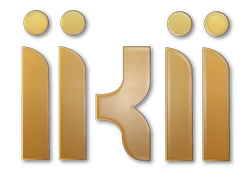Research Article
The Impact of the Malaysia Accreditation of Prior Experiential Learning (APEL) Programme
More Detail
1 INTI International University2 Schneider Electric Singapore* Corresponding Author
Educational Innovations and Emerging Technologies, 4(2), 2024, 8-19, https://doi.org/10.35745/eiet2024v04.02.0002
Published: 30 June 2024
OPEN ACCESS 1835 Views 3559 Downloads
ABSTRACT
The Accreditation of Prior Experiential Learning (APEL) Programme in Malaysia has emerged as a significant initiative aimed at recognizing and accrediting individuals' prior learning experiences, particularly those gained through work, life, or informal learning settings. This paper examines the impact of the APEL Programme in Malaysia, focusing on its implications for individuals, educational institutions, employers, and the broader society. By analyzing the outcomes, challenges, and opportunities associated with APEL, this study aims to provide insights into the effectiveness and potential enhancements of the programme in promoting lifelong learning, skills development, and workforce inclusion in Malaysia.
CITATION (APA)
Leong, W. Y., Leong, Y. Z., & Leong, W. S. (2024). The Impact of the Malaysia Accreditation of Prior Experiential Learning (APEL) Programme. Educational Innovations and Emerging Technologies, 4(2), 8-19. https://doi.org/10.35745/eiet2024v04.02.0002
REFERENCES
- Malaysian Qualifications Agency (MQA). (2022). About Us. Available Online: https://www.mqa.gov.my/ (accessed on February 28, 2024)
- Malaysian Qualifications Agency (MQA). (2018). Malaysian Qualifications Framework: Guidelines for Accreditation of Prior Experiential Learning (APEL). Available Online: https://www.mqa.gov.my/penerbitan/Pages/Accreditation-of-Prior-Experiential-Learning-(APEL).aspx (accessed on February 28, 2024)
- Ministry of Higher Education Malaysia (MHE). (2013). APEL Handbook: Guidelines and Procedures. Available Online: https://www.mqa.gov.my/penerbitan/Pages/Accreditation-of-Prior-Experiential-Learning-(APEL).aspx (accessed on February 28, 2024)
- Ministry of Education Malaysia (MOE). (2012). Pilot Implementation of APEL: Final Report. Available Online: https://www.moe.gov.my/muat-turun/lain-lain/konsep/penerbitan/3674-penerbitan-akreditasi-pembelajaran-terdahulu-berasaskan-pengalaman (accessed on February 28, 2024)
- Ministry of Higher Education Malaysia (MHE). (2015). APEL Implementation Plan: Scaling Up Phase. Available Online: https://www.moe.gov.my/muat-turun/lain-lain/konsep/penerbitan/4169-apel-implementation-plan-scaling-up-phase (accessed on February 28, 2024)
- Ministry of Education Malaysia (MOE). (2017). Malaysia Education Blueprint 2015–2025. Available Online: https://www.moe.gov.my/en/maklumat-lain/pelan-pembangunan-pendidikan-malaysia (accessed on February 28, 2024)
- Malaysian Qualifications Agency (MQA). (2020). Annual Report. Available Online: https://www.mqa.gov.my/penerbitan/Pages/Annual-Report.aspx (accessed on February 28, 2024)
- Noraini, K., Wahid, R., & Wan, A. (2015). Implementation framework system for accreditation of prior experiential learning (APEL) in higher institutions in Malaysia. Journal Teknologi. 77, 145–150.
- Malaysian Qualifications Agency (MQA). (2023). Guideline to Good Practices: Accreditation of Prior Experiential Learning for Access (APEL.A) and Accreditation of Prior Experiential Learning for Micro-credentials (APEL.M). Available Online: https://www2.mqa.gov.my/qad/v2/document/2022/GGP/Draf%20GGP%20APELA%2019May22(ndV3).pdf (accessed on February 28, 2024)
- Ooi, L.H., & Din Eak, A. (2019). Implementation and challenges of accreditation of prior experiential learning: Admissions (APEL-A): The assessors’ perspective. Asian Association of Open Universities Journal. 14, 1–11.
- Leong, W.Y., Leong, Y.Z., & Leong, W.S. (2024a). The Impact of the Accreditation of Prior Experiential Learning (APEL). Programme in Malaysia, In Proceedings of 2024 IEEE 7th Eurasian Conference on Educational Innovation (IEEE ECEI 2024), Bangkok, Thailand. January 26–28, 2024.
- Leong, W.Y. (2022). Human Machine Collaboration and Interaction for Smart Manufacturing: Automation, Robotics, Sensing, Artificial Intelligence, 5G, IoTs and Blockchain. London, UK: The Institution of Engineering and Technology.
- Leong, W.Y. (2023a). Digital Technology for Asean Energy, In Proceedings of 2023 International Conference on Circuit Power and Computing Technologies (ICCPCT), Kollam, India, August 10–11, 2023. pp. 1480–1486. https://doi.org/10.1109/ICCPCT58313.2023.10244806
- Leong, W.Y., Leong, Y.Z., & Leong, W. S.(2023b). Human-Machine Interaction in Biomedical Manufacturing, In Proceedings of 2023 IEEE 5th Eurasia Conference on IOT, Communication and Engineering (ECICE), Yunlin, Taiwan, October 23–29, 2023. pp. 939–944.
- Leong, W.Y., Leong, Y.Z., & Leong, W.S. (2023c). Smart Manufacturing Technology for Environmental, Social, and Governance (ESG) Sustainability. In Proceedings of 2023 IEEE 5th Eurasia Conference on IOT, Communication and Engineering (ECICE), Yunlin, Taiwan, 27–29 October 2023, pp. 1–6, https://doi.org/10.1109/ECICE59523.2023.10383150
- Kumar, R., Jain, V., Leong, W.Y. & Teyarachakul, S. (2023a). Convergence of IoT, Blockchain, and Computational Intelligence in Smart Cities, CRC Press: Boca Raton, Florida, United States.
- Leong, W.Y., Heng, L.S., & Leong, Y.Z. (2023d). Smart city initiatives in Malaysia and Southeast Asia. In Proceedings of 12th International Conference on Renewable Power Generation (RPG 2023), October 14-15, 2023, Shanghai, China. pp. 1143 – 1149,
- Leong, W.Y., Heng, L. S., & Leong, Y. Z. (2023e). Malaysia renewable energy policy and its impact on regional countries. In Proceedings of 12th International Conference on Renewable Power Generation (RPG 2023), Shanghai, China, October 14–15, 2023. pp. 7–13. https://doi.org/10.1049/icp.2023.2114
- Kumar, R., Kapil, A. K., Athavale, V., Leong, W.Y., & Touzene, A. (2023b). The catalyst for clean and green energy using blockchain technology. In Modeling for Sustainable Development: A Multidisciplinary Approach. New York, United States: Nova Science Publishers, Inc. pp. 23–39.
- Choo, K.W., Zakaria, R., Adnan, A., & Leong, W.Y. (2018). Various Techniques on Retrofitting for Earthquake Hazard Mitigation. International Journal of Engineering & Technology. 7, 167. https://doi.org/10.14419/ijet.v7i3.36.29101
- Leong, W.Y. (2019). EEG signal processing: feature extraction, selection and classification methods. London, UK: The Institution of Engineering and Technology.
- Wang, X.F., Chong, P. H. J., and Leong, W.Y. (2010). Performance comparison of CSMA/CD, CSMA/CA, CSMA/RI, CSMA/PRI and CSMA/PR with BEB, In Proceedings of 2010 5th IEEE Conference on Industrial Electronics and Applications, Taichung, Taiwan, June 15–17, 2010. pp. 1843–1848, https://doi.org/10.1109/ICIEA.2010.5515401
- Huang, S., Zhang, D.H., Chan, H.L., et al. (2008). Detecting tool breakage using accelerometer in ball-nose end milling, In Proceedings of 2008 10th International Conference on Control, Automation, Robotics and Vision. Hanoi, Vietnam, December 17–20, 2008. pp. 927–933, https://doi.org/10.1109/ICARCV.2008.4795642.
- Leong,W.Y., Leong,Y.Z., & Leong,W.S. (2024b). Integrating SDGs Education into a Design Thinking Module, In Proceedings of 2024 IEEE 7th Eurasian Conference on Educational Innovation (IEEE ECEI 2024), 26–28 January 2024, Bangkok, Thailand.
- Leong, W.Y., Zhang, J.B., (2024c). Failure Analysis for Project-Based Learning (PBL) in Engineering, ASM Science Journal, 19, 1–12. https://doi.org/10.32802/asmscj.2023.1598
- Leong, W.Y., Leong, Y.Z., & Leong, W.S. (2024d). Engaging SDGs Agenda into a Design Thinking Module. Educational Innovations and Emerging Technologies, 4(2), 1-7. https://doi.org/10.35745/eiet2024v04.02.0001

 OPEN ACCESS
OPEN ACCESS

 The articles published in this journal are licensed under the CC-BY Creative Commons Attribution International License.
The articles published in this journal are licensed under the CC-BY Creative Commons Attribution International License.